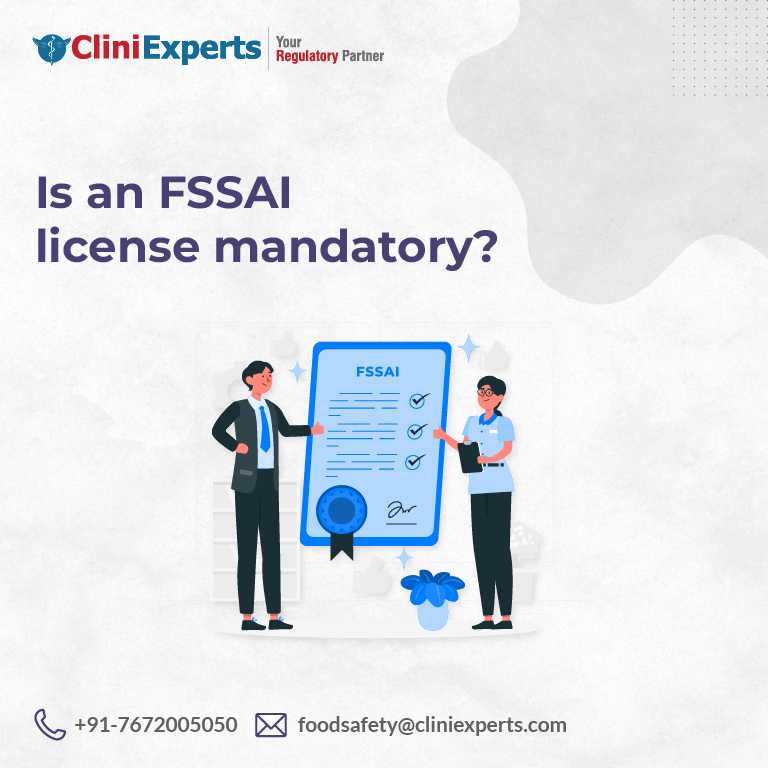Table of Content
Is an FSSAI License Mandatory?

Yes, an FSSAI license is mandatory for anyone involved in the food business in India, whether it’s manufacturing, processing, packaging, distributing, or selling food products. This requirement is laid out under the Food Safety and Standards Act, 2006, governed by the Food Safety and Standards Authority of India (FSSAI).
Legal Obligation
As per Section 31(1) of the FSS Act, “No person shall commence or carry on any food business except under a license.” This applies to all food businesses, including small vendors, hawkers, home-based food sellers, restaurants, canteens, online food delivery services, importers, and even e-commerce food platforms.
There are three types of FSSAI registrations/licenses depending on the size and nature of the business:
- FSSAI Basic Registration – All small-scale Food Business Operators (FBOs) with an annual turnover of up to ₹12 lakh should apply for FSSAI Basic Registration in Form-A. This registration is granted by the designated officer appointed by the Food Safety Commissioner in Delhi.
- FSSAI State License – All medium-sized FBOs with turnover between ₹12 lakh to ₹20 crore should apply for FSSAI State Registration in Form-B. This registration is granted by the office of the Food Safety Commissioner in Delhi
- FSSAI Central License – All large-scale FBOs with turnover above ₹20 crore or those involved in import/export or operating in multiple states should apply for FSSAI Central Registration in Form-B. The Central FSSAI authority grants this registration.
Purpose and Importance of FSSAI License
The main goal of making the FSSAI license mandatory is to ensure that the food being consumed by the public is safe, hygienic, and meets the quality standards set by the regulatory authority. It acts as a seal of trust for consumers, who can rely on licensed businesses to follow standardized practices.
FSSAI registration also ensures traceability and accountability in case of food-related incidents, enabling swift action during contamination or foodborne illness outbreaks. Moreover, businesses with FSSAI licenses are more likely to be trusted by partners, suppliers, and customers, which can significantly improve their credibility and market reach.
It is also mandatory for all food businesses to declare a 14-digit FSSAI License or Registration number on cash receipts, purchase invoices, cash memos, bills, etc.
Penalties for Non-Compliance
Operating a food business without an FSSAI license is a punishable offense. The penalty for non-compliance can be as high as ₹5 lakhs and imprisonment, depending on the nature of the offense. Additionally, food inspectors have the authority to shut down the business or seize products if found to be non-compliant.
Obtaining an FSSAI license is not just a legal formality but a necessary step for any food business in India to ensure public health safety and build consumer trust. Non-compliance can lead to severe legal consequences and business losses.
The FSSAI, established under the Food Safety and Standards Act, 2006, is responsible for ensuring the availability of safe and wholesome food for human consumption. Thus, there are several requirements that go into obtaining licenses and certifications from the FSSAI and its related bodies. CliniExperts offers expert guidance and regulatory services for all food regulatory matters.
Enquire Now
To enquire about our services please complete the form below and we will be in tough with you as soon as possible
Food Regulatory Services
- Consumer Product
- Compliance Services
- Licenses